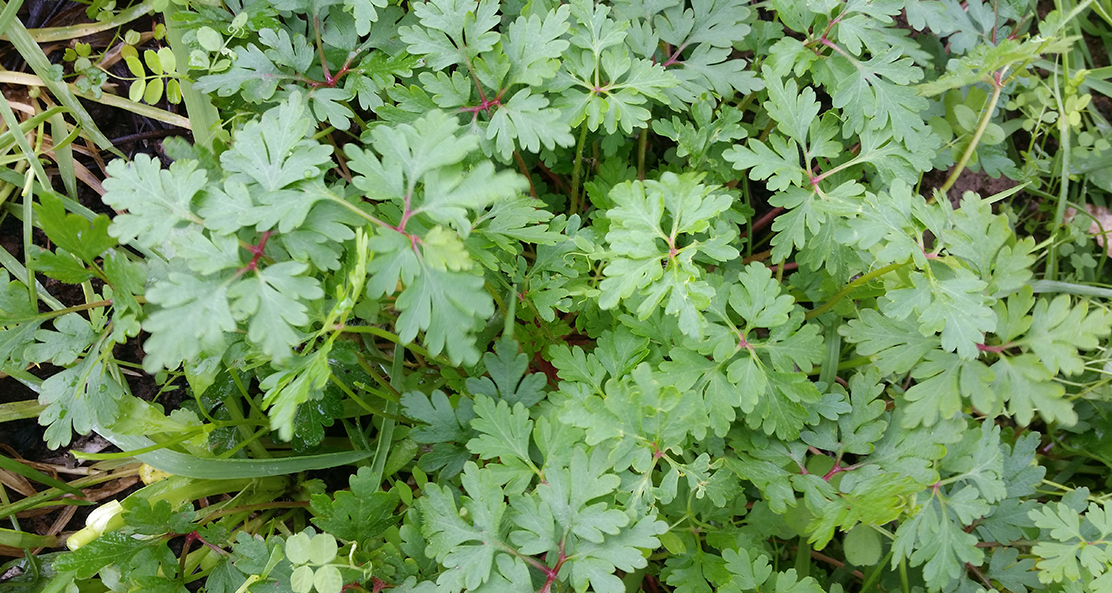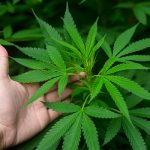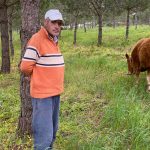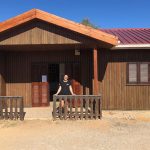Once upon a time Algarve got its well deserved solid winter conditions.
Once upon a time in the Algarve, the weather was showing us its unpredictable character. The Algarvian Barragems were filling up with a lot of precipitation once again, YES!
What does this mean for us treehuggers, botany lovers and experienced foragers? Well simply put, in terms of herbs, wild edibles and the great green friends that we tread on!? It means more of them, more often, better diversity than previous years, with a germination rate of those dormant wild seeds approaching absolute peak. Which in profane language returns as, more free food and medicine, yes sir. So we´re off to a good start to the year.
Recently while doing some weeding, in our large and chaotic garden, I saw a good mate of mine re-appear – Herb Robert – of the Geraniaceae family. Yes, his actual official botanical name is Robert. Slightly less known in the pharmaceutical circles, nevertheless a well known and powerful ally in any of the traditional Sage micro-cosmos. He is hiding and laying low, in many forest clearings, especially residing in damp, shady places, as the first layer of ground cover.
Fairly easy to spot, with its uniquely shaped leaves and somewhat red-painted stems with tiny, rose/pinky flowers. He is widely spread across Portugal, peaking his life phase in late winter to early spring. High humidity, darker misty days with mid temperatures, brings herb Robert great growth and joy, as you will see for yourself when sharpening your plant foraging focus out in the countryside.
In the Portuguese language he can be found under these names – bico de grou, cegonha, gerânio, a erva-de-são-roberto (most accurate). Do not be fooled thinking that all types of your balcony geraniums are the same thing. Nope. Geranium Maculatum (lat.) called Cranesbill is a close relative to the herb Robert, but a completely different plant.
Well established plant research is transparent with this plant, being more popular in traditional native herbal wisdom. Showing many reasons, why Robert could perhaps be your cup of tea?
Let’s dive right in. This herb contains essential oils such as geraniol, citronellol, linalool and terpineol. With proven actions and properties including antiseptic, antiviral, anticancer, hormonal balancing. Also, it is rich in tannins with regenerative and adstringent powers, as well as flavonoids (rutin: quercetin and kaempferol). Showing antioxidant property and gently stimulating our immunity system.
What a bargain, all of that in one tiny little, but often forgotten plant, offers us. One of its bitter constituents, like Geraniin, once in your body, will act as a digestive-aid. Helping our digestive system, by flushing toxins out, acting through the great lymphatic system. Once gut and kidneys are feeling totally refreshed, dear Robert leaves the body more alkaline than before entering your body´s sacred temple. Phenolic acids have shown an anti-inflammatory response in the body. To cut a long story short herb Robert is a true enhancer of the immunity system.
To the touch, the plant feels very soft gentle and somewhat hairy throughout. Regular picking of its leaves will encourage new growth. So might be a good idea picking a bit from one plant and a bit from another, avoiding pulling the whole plant with its roots out.
Regardless of the fact that every part of the plant including roots, can be used. When opportunity allows, using herb Robert fresh is best. Although if dried appropriately you can save most of its constituents. Once I saw it in Lagos, in a well-known health food store – Natur-Boticeae.
Rubbing it in your palm immediately gives away its unpleasant smell, reminding some people of wild foxes, where the alternate name comes from – fox geranium. It has been recorded that it can help to repel insect bites. Overall I would say quite a mysterious plant, far more rich and powerful than usually perceived. While also showing its qualities in the edible world, leaves are picked and lightly cooked, not eaten raw though. The smell goes away once steamed or cooked. The taste turns into what I would describe as very close to cooked potato peal flavour, scented with the sublime mild leftover aroma of coffee.
Only good happens to those who drink true wildcrafted herbal teas without modern teabags that leak micro-plastic out – wisdom from the future!
Herb Robert´s true powers are not to be underestimated. Drinking it alone in a tea is the go-to simple option. Although I would recommend a synergistic tea-blend to maximize the healing potential. For one 3dcl cup, prepare an equal ratio of:
-
- Plantain/ribwort (narrow-leafed variety easy to find, as it grows on most green meadows, lat. Plantago lanceolata)
- Herb Robert (whole plant in flower, or only leaves)
- Wild mint or peppermint (new shoots/tops, or whole plant in flower)
If plants are fresh, cut them into small pieces, then placing them for good 10 minutes in the hot water (90-100 ºC). Sit down and relax, allowing yourself to drink the infusion on empty stomach, or after the meal. Tea will be gently restoring kidney equilibrium, and bringing back much needed interstitial hydration, taking acid-forming cellular waste out of the body. And so much more!
Well, the last few words of wisdom. If we would only embrace a habit of cleaning our bodies inside-out, as we used to clean our cars, smartphone´s cache memory, carpets, windows, floor and mugs. Then true help of these lymph moving plants such as Robert, or Plantain herb, shall become widely recognized and accepted. Until then, stay in love with your body, being regular with, above all – daily self-love.
Much Love, Uros Urso Gardener
www.instagram.com/paixao_pela_vida_selvagem
ilovenature360@gmail.com













